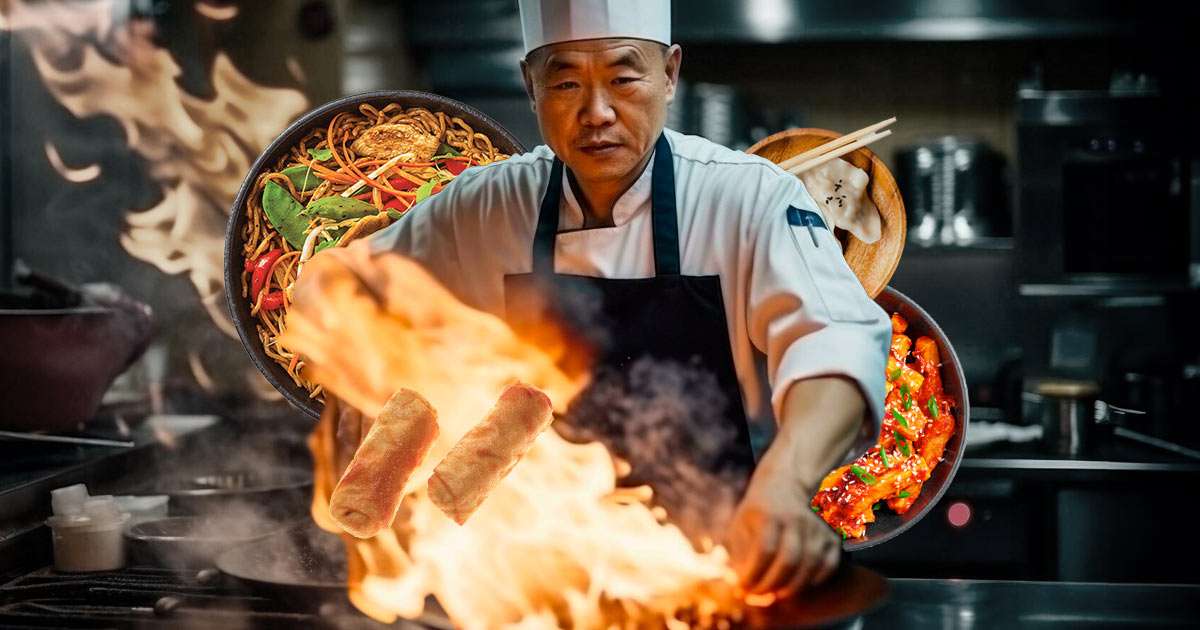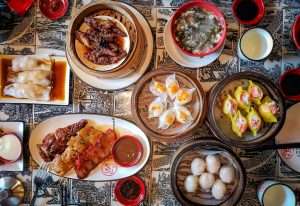Asian Foods: What are They & Why Are They So Popular?

When it comes to tantalizing taste buds, Asian cuisine stands out as a global marvel. The question echoing through kitchens worldwide is, “Why is Asian food so good?” Let’s embark on a flavorful journey to decipher the secrets behind the allure of Asian culinary traditions.
What is Asian Cuisine?
Asia, spanning from the bustling street markets of Thailand to the refined kitchens of China, boasts a culinary tapestry as diverse as its landscapes. Each region contributes unique traditions, ingredients, and cooking techniques, creating a symphony of flavors that defines Asian cuisine. From the aromatic spices of India to the delicate artistry of Japanese sushi, this culinary language is spoken through vibrant colors, tantalizing aromas, and a rich array of tastes. It’s a cultural journey on a plate, where every dish narrates a story deeply rooted in tradition.
Why is it popular?
The global allure of Asian cuisine stems from its ability to transcend the mere act of eating, evolving into a cultural exploration of unique and exotic flavors. This is why many food vloggers and enthusiasts always have a special place in their hearts for Asian foods.
Cultural exploration through flavor
The global allure of Asian cuisine goes beyond mere sustenance; it transforms into a cultural odyssey, exploring unique and exotic flavors that resonate across continents. From the vibrant street markets of Thailand to the refined kitchens of China, Asian cuisine weaves a rich tapestry of traditions and culinary techniques. Its popularity can be attributed to the celebration of diversity, evident in the vast array of dishes originating from different regions. Whether indulging in the delicate dim sum of China or the artful sushi of Japan, each dish becomes a chapter in a culinary narrative that embraces and thrives on its inherent diversity.
Distinguishing ingredients
Distinctive ingredients further set Asian cuisine apart, offering a sensory adventure for those seeking more than sustenance. The culinary canvas encompasses a spectrum of flavors, textures, and aromas, creating an unforgettable experience for the global palate. The use of unique and often exotic ingredients, such as lemongrass, miso, or star anise, adds depth and intrigue to every dish. This universal appeal has transformed Asian cuisine into a beloved choice for those embarking on a flavorful adventure, where each bite is a passport to a different part of the world.
Why is Asian food good?
The excellence of Asian cuisine lies in the meticulous artistry behind its creation, a delicate dance of ingredients, techniques, and cultural influences.

Meticulous artistry
The excellence of Asian cuisine is a result of meticulous artistry, a delicate dance of ingredients, techniques, and cultural influences. Freshness takes center stage, with a careful selection of produce, herbs, and spices contributing to the symphony of flavors that grace the palate. Japanese ramen, for instance, boasts complex umami-rich broths derived from slow-cooked ingredients, while Indian curries showcase a perfect balance of spices achieved through time-honored culinary practices.
Culinary magic unfolds
The culinary magic unfolds through an array of techniques, each dish a manifestation of cultural nuances passed down through generations. The precise art of sushi-making, where every roll is a work of edible art, reflects the meticulous craftsmanship ingrained in Asian culinary traditions. Simultaneously, the slow simmering of curries in Indian kitchens showcases the patience and dedication invested in creating layers of flavor. Asian food isn’t just a meal; it’s a multi-sensory experience that engages taste, sight, and smell. The dedication to quality, combined with the harmonious blending of flavors, creates a unique and indelible mark on the taste buds, elevating Asian cuisine to a level of culinary artistry that is revered globally.
Are Asian foods usually spicy?
The spiciness in Asian cuisine unveils a diverse landscape, showcasing the intricate dance of flavors that go beyond mere heat. Regions like Sichuan in China or Thailand in Southeast Asia are renowned for their bold use of spices, creating dishes that tantalize the taste buds with a fiery kick. In contrast, Japanese cuisine adopts a more nuanced approach, focusing on subtle, umami-rich flavors that complement rather than overpower.
The spice level in Asian dishes is a spectrum, offering something for every palate. From mild and aromatic dishes that entice with fragrant spices to boldly fiery concoctions that leave a lasting impression, Asian cuisine caters to a wide range of spice preferences. It’s a culinary journey where the level of spiciness is an integral part of the overall taste profile, making each bite an adventure in flavor exploration.
Are Asian foods usually healthy?
For the health-conscious, Asian culinary traditions stand as a resounding affirmation of well-being. The emphasis on a well-rounded diet is evident in the incorporation of a diverse array of vegetables, lean proteins, and grains.
Embracing wellness through culinary traditions
For those prioritizing health, Asian culinary traditions offer a resounding affirmation of well-being. The core philosophy revolves around a well-rounded diet, evident in the incorporation of a diverse array of vegetables, lean proteins, and grains. This commitment to balance and health is exemplified by the Japanese diet, where fresh fish, vegetables, and rice take center stage.
Japanese diet: A beacon of health
The Japanese diet, often lauded for its health benefits, epitomizes the nutritional principles of Asian cuisine. Characterized by an abundance of fresh and seasonal ingredients, it reflects a harmonious blend of flavors and nutrients. Fish, a staple protein source, contributes essential omega-3 fatty acids, promoting heart health and reducing the risk of chronic diseases.
Health benefits of Asian plant-based diets
Researchers at the International Food Policy Research Institute shed light on the health advantages of Asian plant-based diets. Staples like rice, legumes, and vegetables, locally grown and thoughtfully integrated into dishes, offer protection against chronic diseases. The emphasis on plant-based elements aligns with contemporary dietary recommendations, providing a nutrient-rich foundation for overall well-being.
A fusion of flavor and wellness
Asian cuisine not only tantalizes the taste buds but also aligns seamlessly with modern health-conscious lifestyles. The fusion of flavor and wellness is evident in every dish, where each ingredient serves a purpose beyond taste – contributing to a balanced and nutritious approach to dining. It’s a culinary journey that transcends mere enjoyment, offering a path towards a healthier, more fulfilling lifestyle. With Asian culinary traditions, wellness becomes an integral part of the dining experience, making each meal a step towards a healthier, more vibrant life.
Asian foods are always delicious to eat
In the grand finale of our exploration, it’s crucial to emphasize that Asian foods are not just good; they are consistently delicious to eat. Whether you’re savoring the delicate balance of flavors in a bowl of Vietnamese pho or relishing the umami explosion of a plate of Chinese stir-fried noodles, the journey through Asian cuisine is an indulgent experience.
The allure of Asian cuisine lies in its ability to transcend borders and captivate the senses. From the cultural roots embedded in every dish to the meticulous craftsmanship of skilled chefs, Asian food is a celebration of diversity and flavor. So, the next time you find yourself wondering, “Why is Asian food so good?” remember, it’s a fusion of tradition, innovation, and a symphony of flavors that makes every bite an unforgettable experience. Bon appétit!

